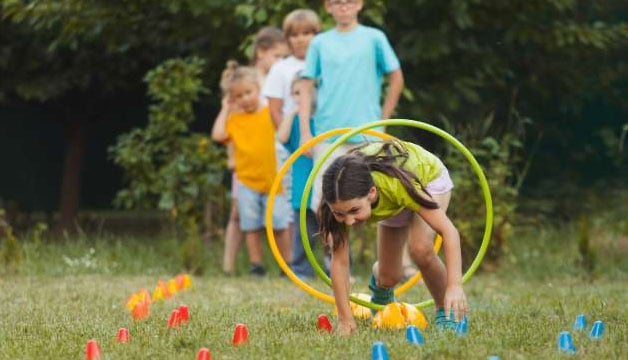As the summer months approach, parents are faced with the challenge of keeping their children entertained, engaged, and also preparing them for the next school year. While academic pursuits are important, parents can both support their child’s academic success and overall well-being by promoting independence in children during this time off from school. Families can use this time to develop non-academic skills that will not only serve them well in the next school year, but also encourage life-long positive habits and values. In this post, we’ll discuss how to identify non-academic goals for your children, identify skill gaps in your children, and use the time off from school to practice those skills.
Identifying non-academic goals for your children
Identifying non-academic goals for your children means identifying areas where they can grow in their sense of personal responsibility, confidence and self-agency, and hobbies and practices that keep them centered and balanced. These goals can be connected to their interests and passions, family or community. Non-academic goals can range from woodworking projects to cooking to community service projects. Sit down with your children and have an open dialogue about what they would like to achieve over the summer break. Encourage them to come up with realistic and achievable goals. Write these goals down and post them where they will be visible.
Identifying skill gaps in your children
Once you have established goals with your children, it is important to identify skill gaps in these areas. If one of your child’s goals is to learn how to cook, for example, identify what specific skills they need to develop. Does your child need to learn how to use a kitchen knife or how to cook specific dishes? Once you identify specific skills to develop, work with your child to create a plan to practice those skills. This can be done through group classes, clubs, online courses or simply by setting aside time to practice together.
Developing skills of independence
Independence is a crucial skill for children to develop, as it will help them throughout their lives. Encourage your children to take on new responsibilities, such as doing laundry or cleaning up after meals. Teach them how to plan ahead by creating schedules and to-do lists. These basic skills will help your children develop a sense of independence, which will serve them well in the future.
Skills of Independence in Preschool and Kindergarten
For children going into preschool or kindergarten for the first time, this summer is vital to make sure they are able to do the simple yet often overlooked tasks like opening lunch boxes and food packaging on their own, using the toilet and washing their hands without assistance and putting on their own shoes and coat. At times, it is a temptation to focus on the academic skills and being “ahead of the curve” for whatever grade level your child is approaching. Always acknowledge the strength that comes when a child feels competent and empowered in their own capacity.
Skills of Independence in Elementary
Many elementary age children can benefit from developing non-academic skills such as communication, conflict resolution, collaboration and problem-solving. At this age, they are needing to learn how to express their thoughts and feelings in a respectful and meaningful way. They are also learning how to engage with others in group work and collaborative projects and how to navigate changing social dynamics amongst their friend groups and extra-curricular. Problem-solving teaches children to think critically about situations and take initiative to find solutions.
Skills of Independence in High School
High school students can benefit from developing non-academic skills, such as self-advocacy, time management, and financial literacy. Self-advocacy helps students become more independent and develop the skills necessary to successfully navigate their academic career. Time management teaches students how to effectively plan and prioritize tasks. Financial literacy helps teenagers know how to budget, save, and invest money. All of these skills can be practiced in autonomous ways during the summer months, where teenagers can feel in charge of their own goals and how they spend their time.
Lifetime of Success
By identifying non-academic goals, skill gaps, and developing independence, parents are not only preparing their children for the next school year, but for a lifetime. Summer is a great time for parents to support their children’s goals and provide opportunities to practice these skills. With a little guidance, encouragement and persistence, children can develop skills that will help them to become responsible, independent and successful adults.

